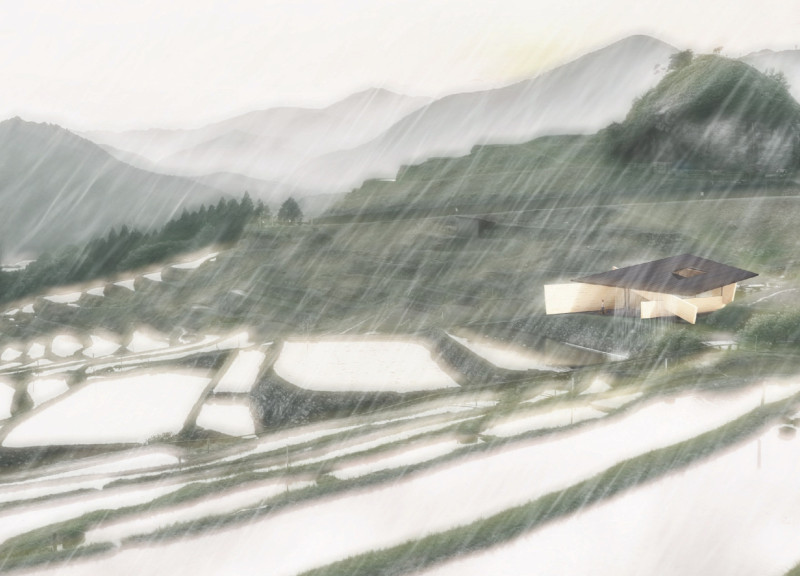5 key facts about this project
The design concept of the microhome emphasizes a strong connection with the surrounding environment, focusing on a natural balance that occurs without human interference. This approach reflects the cyclical patterns found in nature, where rain falls on mountains, flows into rivers, and eventually returns as moisture. The microhome encourages occupants to become aware of their place within this cycle, creating a living situation that emphasizes harmony with nature.
Setting and Adaptation
The microhome is designed to fit the shape of the land, featuring vertical stacking to maximize space. This design choice not only makes the best use of the available area but also enhances the flow of light and air throughout the living spaces. The dwelling includes essential areas such as a kitchen and a shower, promoting straightforward living without unnecessary complexity.
Occupant Experience
Sound plays an important role in the experience of living in this home. Residents can listen to the sounds of birds and flowing water, deepening their connection to the natural world. The layout allows for views of terraced rice fields, and there are spaces for activities like reading and exploring nearby forests. These elements foster a meaningful relationship between the inhabitants and their environment.
Material Selections
The materials used in construction support both practicality and sustainability. Choices include Galvalume steel plates, PVC waterproofing with adhesive, La Poly, and Styrofoam for insulation. White Cedar is utilized for structural joists, providing strength and a pleasing appearance. Aluminum window frames with double glass contribute to energy efficiency while maintaining comfort inside the home. Cross-Laminated Timber (CLT) is used for wall structures, promoting sustainable building practices.
Sustainability Focus
Sustainability is a key aspect of the design. The living space incorporates a system that transforms waste into fertilizer, supporting local agriculture. The integration of natural materials and cycles enhances the environmental focus of the project.
Ample natural light enters the home, connecting occupants to the outdoors and enhancing the feeling of openness. Large windows offer views of the landscape, drawing the beauty of nature into everyday life.



















































